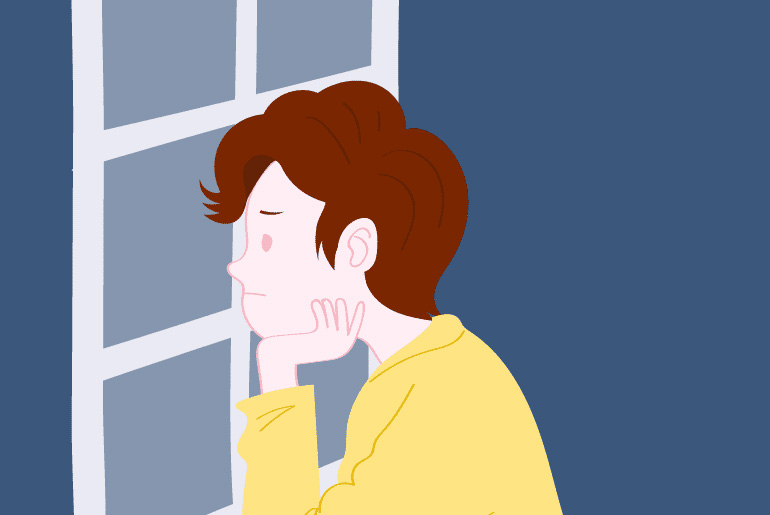Depression is a serious mental health condition characterized by persistent feelings of sadness, hopelessness, and a lack of interest or pleasure in daily activities. It often involves symptoms such as fatigue, changes in appetite and sleep patterns, difficulty concentrating, and feelings of worthlessness or guilt. Depression can significantly impact a person’s ability to function in daily life and may lead to physical health problems if left untreated. It is a complex disorder influenced by a combination of genetic, biological, environmental, and psychological factors.
Effective treatment typically includes a combination of psychotherapy, medication, lifestyle changes, and support from loved ones. Seeking professional help is crucial for managing and overcoming depression.
Symptoms That Indicate You May Be Suffering from Depression:
1. Persistent Sadness, Hopelessness, or Emptiness
- Description: One of the most recognizable symptoms of depression is feeling overwhelmingly sad, hopeless, or emotionally empty. This feeling often lasts for weeks or months and doesn’t improve with positive events or circumstances.
- Impact: It can lead to a sense of despair, making it hard to find joy or purpose in life. Many people describe this as a heavy emotional burden they carry throughout the day.
2. Loss of Interest or Pleasure in Activities (Anhedonia)
- Description: Activities or hobbies that used to bring joy or fulfillment may no longer seem enjoyable. This could include things like socializing, exercising, or engaging in creative work.
- Impact: Anhedonia can lead to withdrawal from social interactions and isolation. The person may stop doing things they once enjoyed, which further fuels feelings of depression.
3. Changes in Sleep Patterns
- Description: Depression can disrupt sleep in two main ways: insomnia (trouble falling or staying asleep) or hypersomnia (sleeping excessively). Insomnia often results in waking up early and being unable to fall back asleep, while hypersomnia leads to feeling tired all the time despite excessive sleep.
- Impact: These changes in sleep patterns can worsen fatigue, mood swings, and difficulty functioning during the day.
4. Significant Appetite or Weight Changes
- Description: Depression may cause noticeable shifts in appetite, leading to weight loss or weight gain. Some people may lose interest in food entirely, while others may turn to overeating for comfort, particularly foods high in carbohydrates or sugar.
- Impact: Unintentional weight loss or gain can contribute to feelings of low self-esteem and physical discomfort, further complicating the emotional effects of depression.
5. Difficulty Concentrating, Making Decisions, or Remembering
- Description: Depression can impair cognitive function, making it hard to concentrate, think clearly, or remember things. This mental fog may lead to indecisiveness and confusion over even small tasks.
- Impact: Difficulty concentrating can interfere with daily activities, work, or school performance, exacerbating feelings of frustration, worthlessness, or guilt.
These symptoms, especially when experienced together and lasting for two weeks or longer, may indicate clinical depression. If you or someone you know is showing these signs, seeking professional help is crucial for diagnosis and treatment.
Disclaimer:
The information contained in this article is for educational and informational purposes only and is not intended as a health advice. We would ask you to consult a qualified professional or medical expert to gain additional knowledge before you choose to consume any product or perform any exercise.







